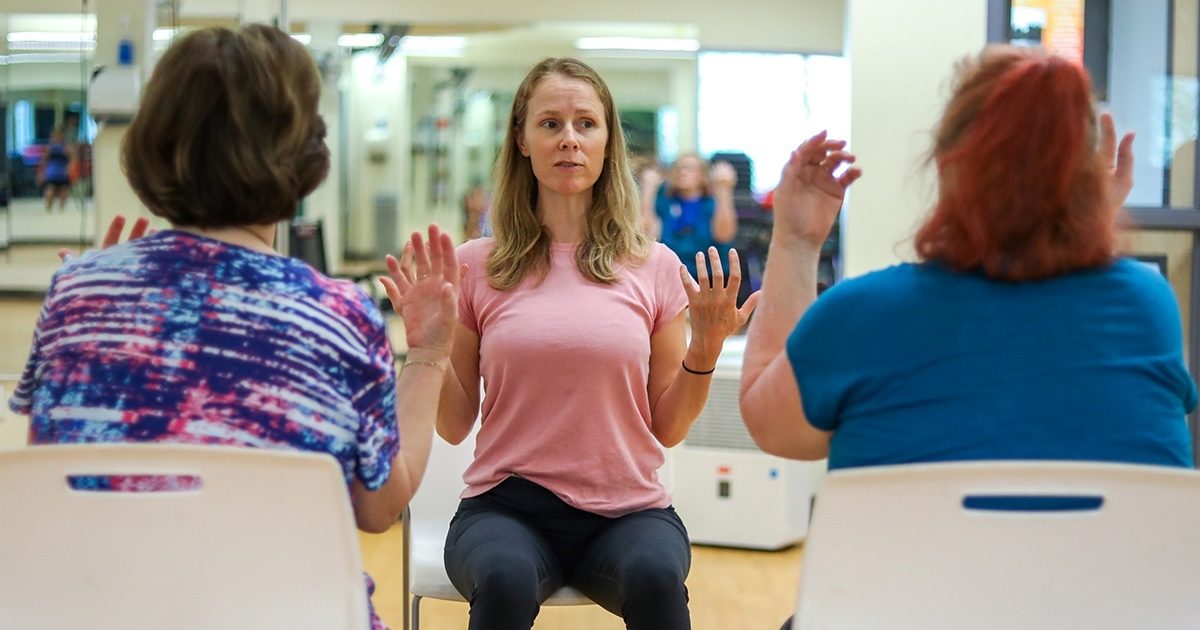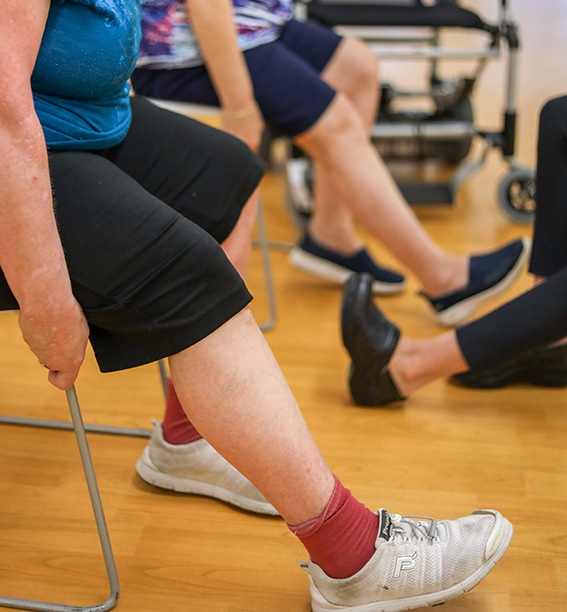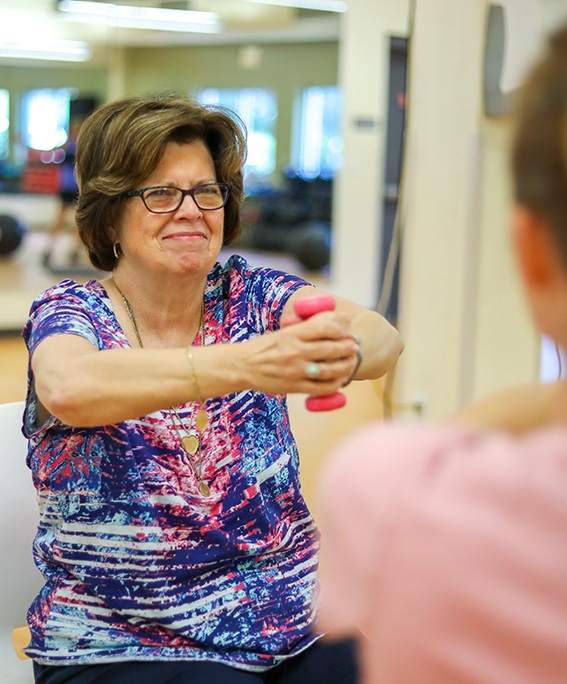Care Reaching Beyond the Care Room
Moving Stronger exercise program for MS patients expands to Austin
Written by: Lauryn Feil
Reviewed by: Léorah Freeman, MD, PhD

UT Health Austin neurologist, Léorah Freeman, MD, PhD, is passionate about extending healthcare beyond the traditional bounds of the clinical care room to enhance patient’s lives with care that meets them where they are in their community. To better meet the needs of her patients, Dr. Freeman partnered with the National MS Society and the YMCA to create an exercise program designed specifically for patients with multiple sclerosis, which she has now expanded to the Austin Townlake YMCA.
The Moving Stronger program was the first of its kind in the country when it was initially launched in Houston in 2017. It is free of charge for participants and is led by trained YMCA instructors, including experts in yoga, water exercise, circuit training and functional training. For each exercise modality, modifications are outlined to adapt to each participant’s level of ability, including seated options. The program brings together strength and flexibility exercises that mimic daily life movements to help patients with mobility outside of the program and their doctor’s office.
“We know that people with MS that engage in physical activity in addition to more classic neurological care and disease-modifying therapy have better outcomes than those who receive neurological care alone,” says Dr. Freeman. “We created this partnership to focus on how we can transform the delivery of care for people with MS. We wanted to educate them on the benefit of physical activity while giving them the skills to get and stay active consistently.”

Multiple sclerosis is a disease in which the body’s immune system has an abnormal response to the central nervous system that causes inflammation resulting in damage to the outer sheath that protects the nerves. MS manifests differently in each individual, but some common symptoms can be fatigue, imbalance, weakness, numbness, cognitive dysfunction and more. It affects at least 2.3 million people worldwide, and nearly one million people in the United States and there is no cure.
“Our goal was clear. We wanted to deliver a program that was accessible in the community, inclusive of all people and scalable to other YMCAs so that it not only transforms the lives of people in our community but can grow beyond the bounds of our city and our state,” says Dr. Freeman.
Evidence shows that regular, aerobic exercise can help increase strength and balance, decrease spasticity, and improve fatigue and cognitive difficulties related to MS. And while exercise may be a prescribed treatment for those with MS, it’s important to be cautious about exertion and heat-sensitivity.
“All of the Moving Stronger instructors went through a very thorough training program where we learned about the condition and how to create neuro-inclusive exercises that we can modify and shape to each individual’s MS experience because every day is different for every person,” says Elizabeth Doss, program instructor and Healthy Living Coordinator at the Austin Townlake YMCA.
Moving Stronger meets twice per week for one hour for 12 weeks and is offered three times per year. Participants can continue through the program all year and the YMCA works with participants to find other programs offered that may work for their exercise level if exploring other classes is of interest to them.
“Because MS is an ongoing chronic condition and because exercise never stops being valuable, we encourage the participants to continue to take the class throughout the year as long as it is beneficial to them,” says Doss.
At the end of each 12-week period participant progress is measured and feedback is gathered to track outcome measures and to improve the class offerings for future participants. Participants have reported improvements in fatigue, endurance and overall quality of life and 100% of participants said they would recommend the program to someone else.

“What has been truly amazing is that we have not only built a safe place for people to exercise but we have built a village around them. Our participants feel understood and supported by their instructors and also by their peers. We welcome people of very different ability levels and life circumstances, and there is always a clear connection between all of them,” says Dr. Freeman.
This summer was the first 12-week offering of the Moving Stronger program at the Townlake YMCA where they piloted the class with eight participants, of which many have reported that they are eager to come back in September when the next program offering begins. Plans to expand to other YMCAs across Austin are also being developed to increase access across the city.
“The better your social life, whether the people you are exposed to are MS patients or not, and the more you’re moving, the better off you are in the long-run,” says Moving Strong participant Nan Duhon. “A lot of people don’t understand MS as it can be a very silent disease, so the more I feel I can get out and move and make friends, the more motivated I feel to keep going.”
To learn about all Greater Austin YMCA programs, visit here.
For more information about the Multiple Sclerosis and Neuroimmunology clinic in the Mulva Clinic for the Neurosciences or to make an appointment visit here or call 1-833-UT-CARES (1-833-882-2737.